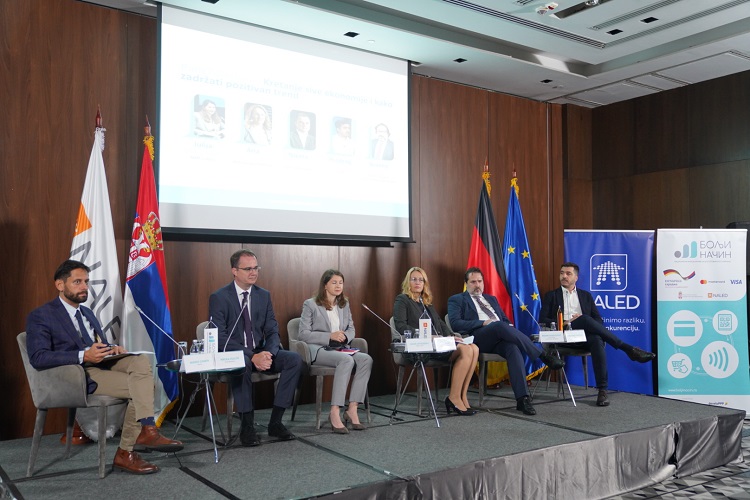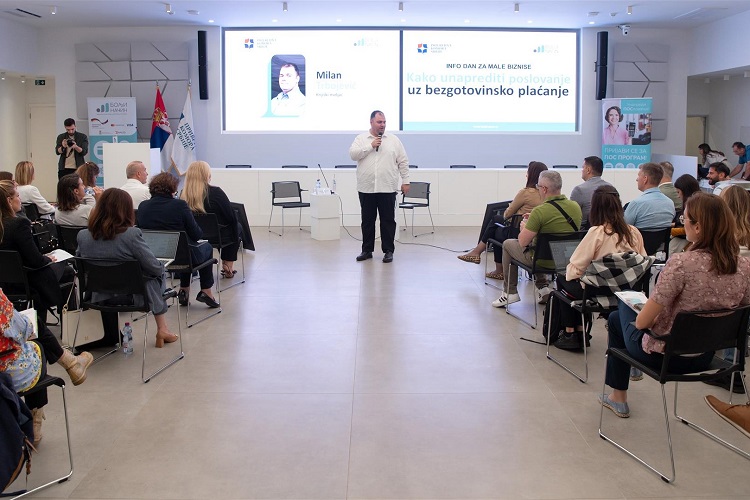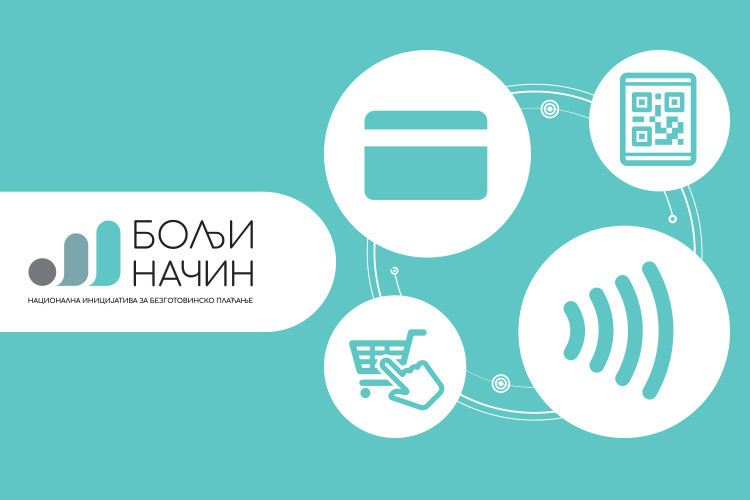Businesses are cautious - We need higher economic growth to catch up with EU countries
The economic growth of Serbia for this year will be up to 3.5%, while inflation will slow down. However, this is insufficient for us to reach the average of European countries, as concluded at the panel discussion 'Macroeconomic Trends in 2024,' organized by NALED's Fair Competition Alliance with the support of the National Initiative for Cashless Payment 'A Better Way.'
The event was opened by Zoran Daljević, president of the Fair Competition Alliance and general manager of the Atlantic Group in Serbia, with a message that in light of the global crisis, the implementation of measures from the new Program for Countering Shadow Economy becomes increasingly important to support responsible businesses. He also noted that the growth of non-cash transactions is one of the main measures in combating the shadow economy.
The UN Resident Coordinator in Serbia, Francoise Jacob, emphasized the need to shift from short-term decisions to long-term and structural plans based on green transformation and reducing inequalities.
Serbia's economy has been resilient because it had support during the crisis, as well as a good foundation in legislation. However, we must still be cautious, especially when it comes to Serbia's ambitious plans for 2027 and the investments that will come," said Jacob, adding that our country has achieved 25% of the sustainable development goals, which is above the global average.
Nevertheless, Western Balkan countries need higher economic growth to reach EU countries, emphasized Peter Tabak, Chief Regional Economist at the EBRD.
Growth could accelerate to 4 or 5%, which would mean real rapid development. This requires not only greater investments but also more efficient public administration and better management of state-owned enterprises. A few years ago, a study showed that improving the efficiency of state-owned enterprises to the level of private ones would increase GDP by 2%," Tabak explained, noting that work on this is already underway.
The event also presented the preliminary results of NALED's business sentiment survey, which shows that only half of the businesses expect investment growth this year, while the biggest challenges for the economy are labor availability and inflation. Businesses emphasize that laws related to labor and employment, wage burdens, energy, construction, and the environment should be at the top of the agenda for the new Government of Serbia, but it is also necessary to work on harmonizing with EU regulations.
Private consumption, along with returning inflation to the specified corridor by the end of the year, increasing wages, and falling interest rates in the second half of the year, will lead to growth," said Nikola Vuletić, Executive Director of Unicredit Bank in Serbia, adding that real estate prices are currently stagnant, but he expects the real estate sector to continue growing in a year.
Last year, the domestic but global economy showed great resilience, according to Miloš Zečević, Director of the Controlling and Accounting Sector at Erste Bank. He stated that the monetary policy implemented by the National Bank of Serbia is leading to a reduction in inflation, and by the end of the year, inflation could fall to around five percent. Regarding the movement of the euribor, he emphasized that this interest rate could drop from the current around four percent to 2.9 percent by the end of the year.
The National Initiative for Cashless Payment is a joint project of the Deutsche Gesellschaft für Internationale Zusammenarbeit (GIZ) GmbH and Mastercard and Visa companies, implemented under the develoPPP program of the German Federal Ministry for Economic Cooperation and Development (BMZ) in cooperation with NALED and the Ministry of Finance of the Republic of Serbia.




